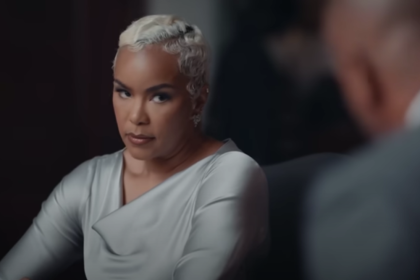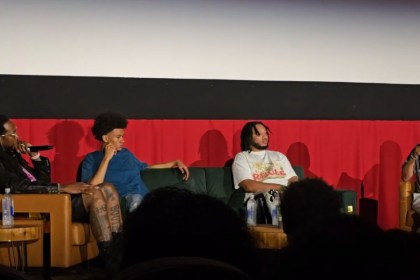Former NFL defensive end Simeon Rice’s feature film directorial debut, the thriller Unsullied, hits theaters this week. The three-time Pro Bowler has a deep affinity for films, and after a stellar career in the league, he pushed to realize a new dream for himself. Rice won a Super Bowl ring back in 2003 when his Tampa Bay Buccaneers defeated the Oakland Raiders; a game during which he notched five tackles and two sacks. Rice moved on from the NFL in 2008 and decided to focus on his other ambition; his love for filmmaking became more of a priority. Deciding to pursue his passion seriously, Rice enrolled at the New York Film Academy and began taking the steps needed to become a director.
“The ability to tell stories — to tell our stories — and [I wanted] to create films that we have leading roles in that challenge what we’re typically seen in. We should be able to star in any role and in any circumstances, from the best story to the worst story. Being able to do that has been enlightening for me. Oftentimes, we create stories from biopic standpoint or our neighborhood or community — telling our story there. I feel like our stories go beyond the realm of fact; we can tell fictional stories unrelated to community circumstances. We can tell fictional stories based on our own perception[s] and our own mind[s].”
His film, Unsullied, stars actress Murray Gray and tells the story of a track star who becomes captive to sadistic woodsmen and has to fight her way out of the unfamiliar backwoods and defeat her captors. The premise recalls a number of films in the genre, and Rice says that he wanted to make the kind of movie he’s always wanted to see.
“Watching No Country For Old Men and films like Hostel — high anxiety films — made me want to create a story that made an audience feel like that,” he explains. “I also wanted to create a hero character where you see her grow in this situation. It’s an urban African American girl caught in the great unknown. How does she deal with this? Does she have the resolve to fight and endure?”
Once he got behind the camera, the Chicago native was met with various types of resistance. Everything from his background as an athlete to his decision to cast a black woman as the lead in a thriller came under scrutiny from executives.
“People oftentimes approach things from a familiar standpoint, so if it’s unfamiliar territory people are going to have a lot of questions. But I was told that Black women don’t translate in films. I had a problem with that. I didn’t believe that. Time will tell and I have to see how people respond to it; but I think people will respond to a quality film. If you like action, if you like suspense, you’ll like this film. There are so many ingredients in the film. When I was pitching this film, there was a lot of attention. It didn’t matter that I’d gone to film school or not. People were already trying to define me based on what I’d done. You go into these meetings and executives have these thoughts about football; they weren’t able to [recognize] that I wasn’t doing that anymore. But it was a call to action for me to either continue down this road or create my own.”
“The beauty of indie filmmaking is you can tell your own stories. You don’t have to ask for permission.”

















